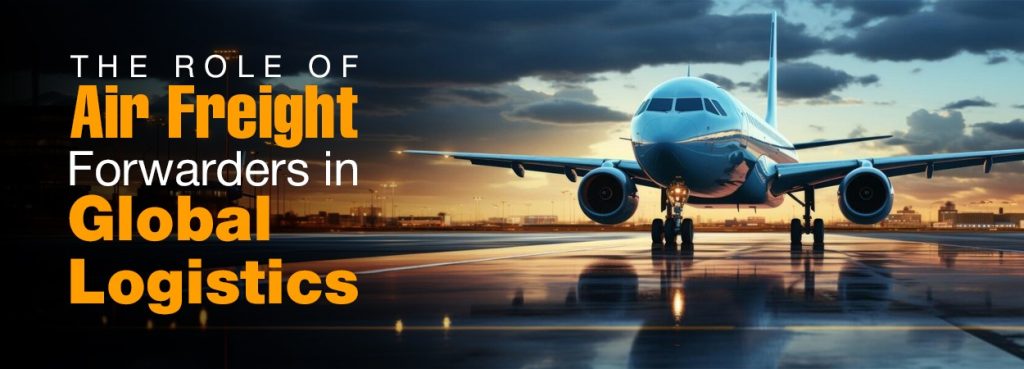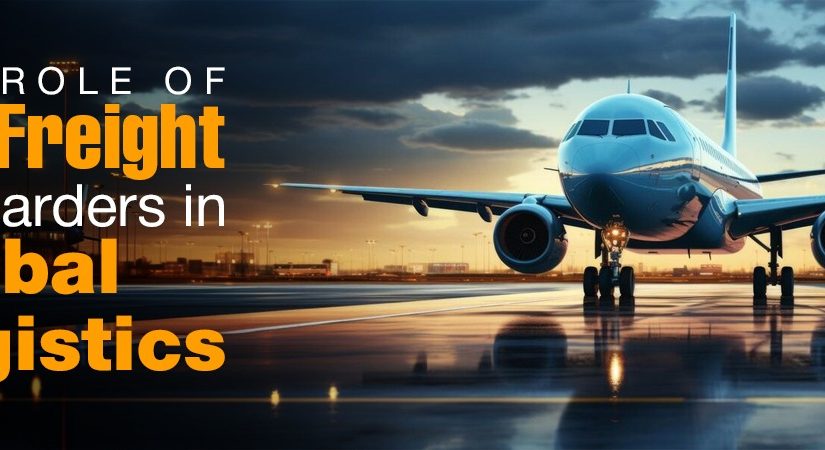
Business operations in the modern interconnected world require quick and efficient border-crossing transportation for goods delivery. Global trade depends heavily on logistics networks and air freight forwarders play a crucial role in ensuring that shipments reach their destinations swiftly and securely. Air freight serves as the transportation choice of preference for businesses that need fast delivery of their high-value electronics, perishable food products, and urgent medical supplies.
A freight forwarding agency acts as an intermediary between shippers and transportation services, handling the complexities of global shipping, customs clearance, and logistics planning. Businesses can enhance their supply chain operations and international trade processes through full comprehension of freight forwarding services.
What is an Air Freight Forwarder?
An air freight forwarder is a specialist in air cargo logistics, responsible for managing the transportation of goods via airlines. Air freight forwarders serve as intermediaries who work together with airlines to acquire shipping space and prepare documentation while maintaining international trade regulations although they do not operate their own aircraft fleet.
Air freight forwarders are particularly valuable for businesses that require fast transit times, as air transport is significantly quicker than sea or road freight. These organisations lead shipment coordination by offering tracking amenities and solutions for the complicated aspects of cross-border logistics.
Key Roles and Responsibilities of a Freight Forwarding Agency
A freight forwarding agency plays a multifaceted role in global logistics, offering a range of services to facilitate smooth and efficient cargo transportation. The freight forwarding agency performs multiple duties which include:
1. Freight Booking and Space Allocation
The limited availability of air cargo space remains a challenge because the market becomes extremely competitive during peak periods. Through their airline connections freight forwarders obtain shipping space which guarantees the timely delivery of goods. Freight forwarders use their carrier connexions to secure optimal shipping routes and rates for their clients.
2. Customs Clearance and Compliance
The process of international trade requires companies to understand diverse customs rules and regulations that differ between nations. Freight forwarders prepare correct documentation which includes commercial invoices, certificates of origin, and customs declarations for their clients. Freight forwarders minimise delays and avoid penalties through their compliance expertise by preparing accurate documentation.
3. Cargo Consolidation
Businesses shipping smaller consignments can use freight forwarders to obtain cargo consolidation services. Companies can reduce expenses by joining their multiple shipments into one single delivery, enabling them to share transport space with others. The consolidation process delivers maximum value to companies which lack sufficient shipping volume to fill complete cargo containers.
4. Real-Time Shipment Tracking
A business needs to monitor international shipments to generate effective operational plans. Shippers can check their cargo status in real-time through tracking services offered by freight forwarders. Through transparent delivery tracking businesses can predict shipment timelines and respond ahead of time to possible delivery delays.
5. Risk Management and Insurance
The process of air freight transportation exposes shipments to different potential risks which may cause damage loss or delivery delays because of unexpected events. Businesses can protect themselves from unexpected events through cargo insurance services which freight forwarders help businesses obtain. Risk management strategies combined with proper handling techniques form part of their operations to protect goods from transit-related damage.
Benefits of Working with a Freight Forwarder
Collaborating with an air freight forwarder offers numerous advantages, especially for businesses engaged in global trade. Some key benefits include:
- Faster Transit Times: Through air freight, businesses can achieve the fastest delivery times for time-sensitive shipments. Air transport speed becomes maximised through efficient logistics management provided by freight forwarders to their business clients.
- Cost-Effective Solutions: Using their expertise freight forwarders minimise shipping expenses by securing favourable rates, merging multiple shipments, and choosing economical transportation paths.
- Expertise in International Regulations: The intricate nature of international trade regulations poses difficulties to businesses. However, freight forwarders maintain a comprehensive understanding of import/export rules, customs policies, and duty structure knowledge. Freight forwarders apply their expertise to guarantee shipment compliance with legal requirements which minimises the possibility of delays or fines.
Final Overview
The competitive nature of global trade requires businesses to implement efficient logistics solutions because they need to maintain their position in the market. Air freight forwarders play an indispensable role in managing international shipments, ensuring timely deliveries, and navigating complex customs regulations.
By working with a reputable freight forwarding agency, businesses can optimise supply chain operations, reduce logistics costs, and enhance customer satisfaction. Freight forwarders provide essential expertise and support for air cargo logistics operations which includes international transport of goods and urgent delivery management.
Selecting the best freight forwarding company is a strategic decision that can significantly impact a business’s global reach and operational efficiency. A suitable logistics partner enables corporations to expand their operations and grow their business through efficient delivery services that meet their deadlines.

